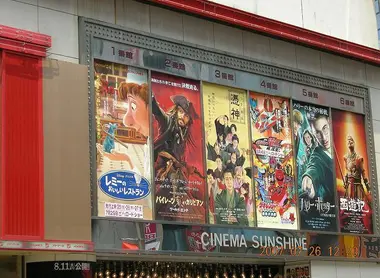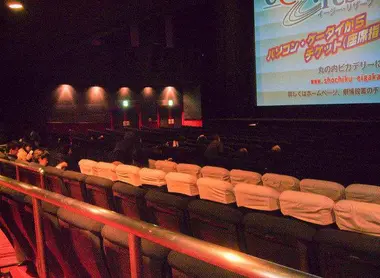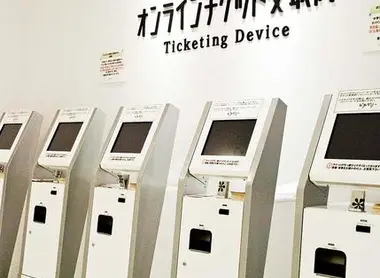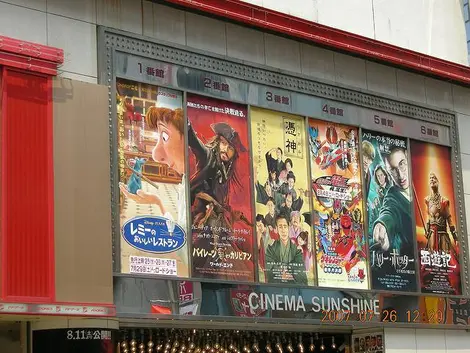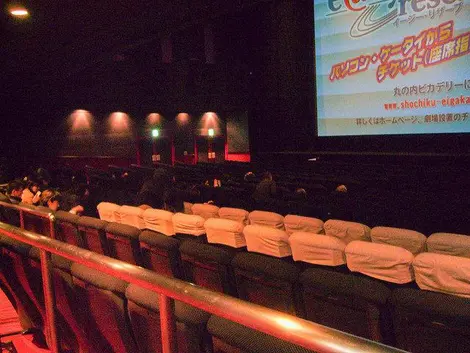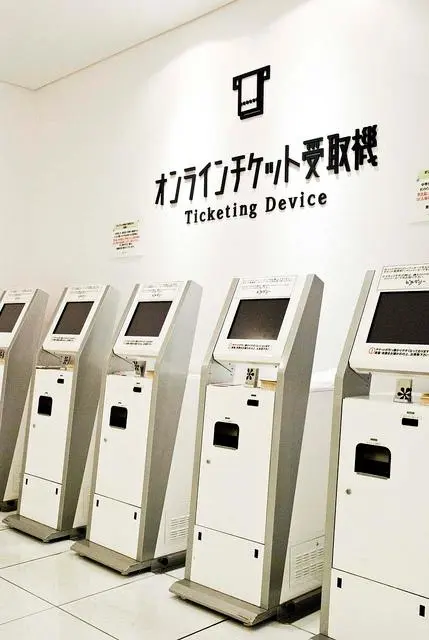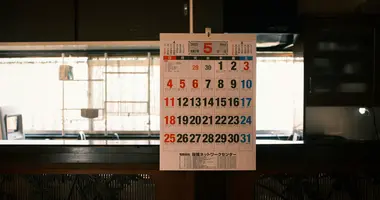Going to the movies in Japan
- Published on : 26/04/2024
- by : I.D.O.
- Youtube
The cinema experience in Japan offers a unique blend of tradition and modernity. Although similar to that of other countries, it has its own particularities linked to Japanese culture and its famous customer service. From huge, comfortable cinema complexes to small art house cinemas, Tokyo and other major Japanese cities have no shortage of movie theaters. Discover the different aspects of this experience, from the choice of film to the purchase of tickets and the expected behavior during the screening.
Film selection and programming in Japan
In Japan, film programming is a subtle balance between domestic and international productions. Japanese films, known as "hôga" (邦画), rub shoulders with foreign productions, known as "yôga" (洋画). However, it's important to note that foreign blockbusters often arrive several months after their initial release.
For cinephiles, there's a wide variety of choice. Foreign films are generally offered in their original version with Japanese subtitles (jimaku, 字幕), which is a boon for non-Japanese-speaking viewers. However, for major productions, it's also common to find dubbed versions in Japanese (fukikae, 吹き替え).
Japanese cinema itself offers a rich palette of genres, from intimate dramas to action films to anime from the famous Studio Ghibli. Directors such as Akira Kurosawa, Yasujirō Ozu and more recently Hirokazu Kore-eda have contributed to the international renown of Japanese cinema.
Booking and buying tickets: a unique process
Booking cinema tickets in Japan is a well-organized process that differs from Western practices. Unlike many countries where you can sit anywhere, in Japan you choose your seat when you buy your ticket. This system of numbered seats is the norm, whether purchased online or directly at the box office.
There are several options for purchasing tickets:
- Online purchase: Many cinemas offer websites, sometimes partially translated into English, for advance reservations.
- Automatic ticket machines: Available in cinemas, these are often equipped with an English-language option.
- Ticket offices: For those who prefer in-person service.
Advance reservations are highly recommended, especially for popular films and new releases. Sessions can fill up quickly, limiting the choice of seats available on the day.
Prices and numerous discount options
Movie ticket prices in Japan may seem high at first, but there are many ways to benefit from discounts. The standard rate for an adult is generally around 1,800-1900 yen (approx. 14-15 euros), but here are a few options for paying less:
- First Day: On the first day of the month, many cinemas offer reduced rates.
- "Ladies' Day": usually on Wednesdays, women benefit from discounts.
- Student and senior rates: Discounts are available on presentation of proof.
- Early-morning or late-night screenings: Often cheaper than daytime screenings.
- Season tickets: For long-term discounts.
For 3D films, there is usually an additional charge of around 400 yen. It's advisable to check the specific offers of each cinema, as discounts may vary.
The cinema experience: comfort and Japanese etiquette
Japanese cinemas are renowned for their comfort and state-of-the-art technology. Seats are generally spacious and equipped with cup holders. Many cinema complexes offer advanced technologies such as IMAX, Dolby Atmos or 4DX.
However, the cinema experience is also marked by strict etiquette, typical of Japanese culture:
- Absolute silence: Japanese moviegoers are known for their discretion. Laughter and shouting are rarely heard, even during comedies or horror films.
- No use of telephones: It is strictly forbidden to use a telephone during the screening.
- Respecting the credits: It's customary to remain seated until the end of the credits, out of respect for the film's creators.
Before the film begins, announcements are made to remind the audience of these rules of good behavior, often in a playful way with animated mascots.
Japanese cinema: from popcorn to goodies
The cinematic experience in Japan is not limited to the screening of the film. It also encompasses a series of rituals and services that make it unique:
- Snacks and drinks: In addition to the traditional popcorn, there's often a wide range of snacks, including more local options.
- Goodies: Many cinemas offer merchandise related to the films shown, from key rings to soundtracks.
- Extra comfort: Some cinemas provide plaids to counter the sometimes strong air conditioning in summer.
A special Japanese feature is the "meal tray" supplied with drinks, allowing you to place your food comfortably on the armrest of your seat.
Leaving the theater and respecting the credits
The end of the screening in Japan is marked by a special ritual: respect for the credits. Unlike many countries, where spectators rush to the exit as soon as the first names appear, in Japan it is customary to remain seated until the end of the credits.
There are several reasons for this behavior:
- Respect for the creators: It's a sign of gratitude to all those who have contributed to the film.
- Extending the experience: It allows you to stay immersed in the film's atmosphere a little longer.
- Order and calm: It avoids the hustle and bustle of exiting the theater.
The lights generally remain off until the end of the credits, naturally encouraging spectators to stay put. Once the film is over, spectators calmly leave the auditorium, taking their garbage with them and disposing of it in the garbage cans provided at the exit.
Practical tips to make the most of your screening
To make the most of your cinema experience in Japan, here are a few practical tips:
- Book in advance: Especially for popular films or new releases.
- Check the film version: Make sure you choose between the original version with subtitles or the dubbed version.
- Arrive early: Allow time to buy snacks and make yourself comfortable.
- Respect local etiquette: Remain silent during the screening and turn off your phone.
- Take advantage of discounts: Ask about special days and reduced rates.
- Stay until the end of the credits: It's a sign of respect appreciated in Japan.
By following these tips, you'll ensure an authentic and enjoyable cinematic experience in Japan. Whether you're a fan of Japanese cinema or simply curious about this facet of Japanese culture, going to the movies in Japan is an enriching experience that goes far beyond simply watching a film.
